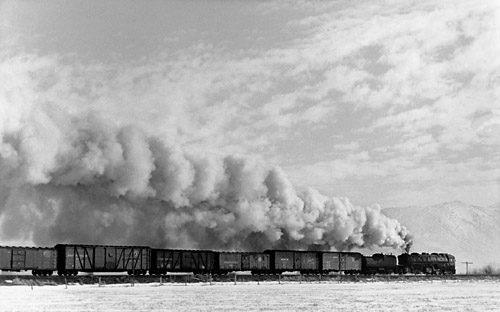
LETTER 18
WARNING:
We Do Not Advocate or Condone Illegal Activity.
See Your Lawyer Before Breaking the Law.

GUNS, FREIGHTS AND ALCOHOL - THE AMERICAN DREAM
By An Anonymous Ex-Tramp
Followed by THE TRAMP, by Jack London
"When I first started hoboin', I took a freight train to be my friend."
- John Lee Hooker, 1949
[Excerpts from e-mail correspondence, beginning with discussion of September 11 and American policy in the Middle East]
[Scanned photos of tramps and hoboes in hobo jungles at Wishram Washington and Klamath Falls, Oregon]
Caption on second photo: "..Hoboes... sacrifice comfort for independence... Walking, waiting, and the hazards of hopping trains and eluding police remain constants of the hobo life."
[…] I've been in both the towns mentioned, in Wishram they had five unsolved murders in the hobo jungles in 6 months. I heard this from the son of a rail yard employee, very small town, too.
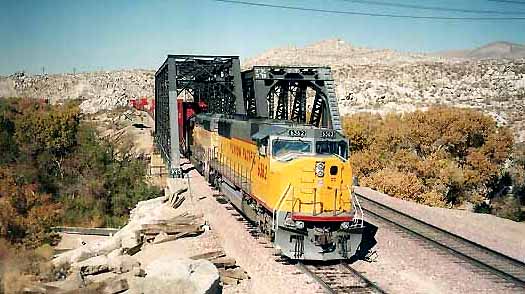
Klamath Falls was a great jungle, great road, Western Pacific, down the Feather River Gorge over the desert from Ogden, Utah, very rugged country, some spectacular train wrecks. I waited so long for a freight at Klamath Falls one time, me and a bunch of other tramps, there were actually buzzards circling around overhead waiting for us to die.
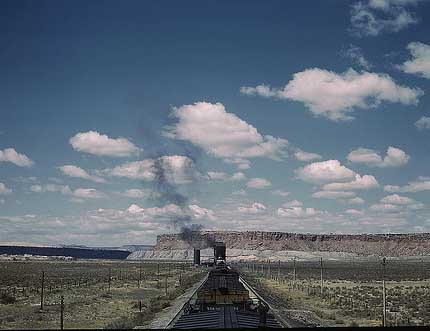
Finally some Christian missionaries came down to the feed us, right there in the jungle, with a big cauldron of soup, invited us to the mission in town.
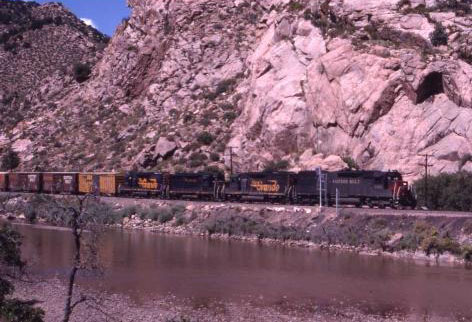
The biggest jungles are in California, Santa Barbara used to be the biggest, they cut out the division points and that's probably gone now, except for the locals. The niggers used to rob tramps and throw them off trains along there, between Santa Barbara and San Luis Obispo, they had 5 or 6 unsolved murders on the beaches there in about 6 months, mostly hippies sleeping on the beaches, etc., a survivor said it was a gang of niggers, he lost an eye, plus all the tramps chucked off trains.
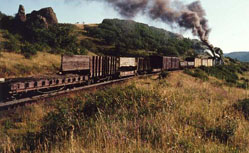
The niggers will beat you to death for a nickel. How's that for "terrorism"? That was in the early 60s, when the Marching Looting Koon was still talking about "non-violence".
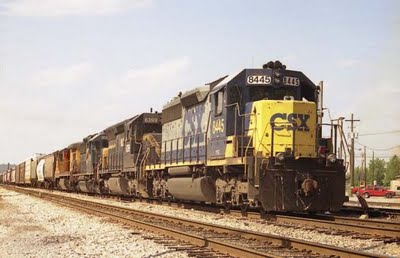
Of course there's always some problem on the other side of the world we can always solve, maybe with another nine-year war or an atom bomb or two.
[COMMENT FROM INTERVIEWER: SLICE OF LIFE. TOUGH SLICE.]
Talk about tough slice, one time a nigger grabbed me by the arm, hobo jungle, waiting for a train, you know, about ten o'clock at night, says, “I'm going to beat you until you can't walk”, I was trying to figure out how to make him let go of me, he pulled me into a corner underneath a bridge, by a railroad track, and there was a dead guy under the bridge, covered up with a piece of plastic, with his feet sticking out, wearing lace-up boots. The nigger says, “You see what's going to happen to you? Dat sonofabitch is DAY-UD”, I said, “No, maybe he's not dead, maybe he's only drunk”, the nigger says, “No, he day-ud, lookee dis”, and he starts kicking the corpse, the funny thing is, he hadn't killed him, we thought he'd been killed by some other tramps who were around a while before and then disappeared, so we stood there kicking this corpse for about ten seconds, I kicked him 3 or 4 times, it was just like kicking raw hamburger, it wasn't even stiff yet, finally I thought, “What the hell am I doing this for? This guy is going to kill me”, so I broke his grip and ran, called the cops from a pay phone, said, “There's a dead body under a bridge at such and such a location”, they said, “OK, thanks”, hung up, I was back in the same yard about a year later, S.P. yards L.A., San Fernando Road, etc. and asked a car knocker (they fill the brake boxes with fluid on all the freight cars), “Hey, did you find a dead body under that bridge during the month of August last year?” He says, “Yes, we did”. I said, “How was he killed, stabbed, hit on the head?” The car knocker says, “Naw, got cut in half by a train”.
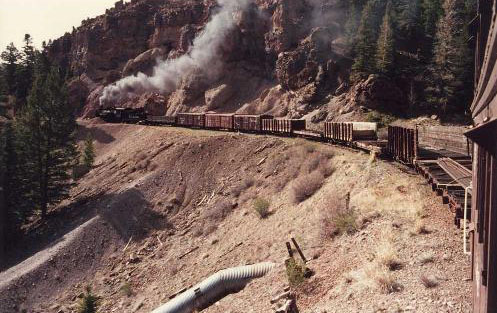
Every time there is an accident in the yards, the railroads have to fill out all kinds of paper work, which makes them mad, so the railroad police arrest all the tramps or run them off out of the yards, so somebody must have seen it and pulled the body off the tracks and covered it up until he/they could get out of town.

When you catch a freight, you grab the FRONT end of the car, what sometimes happens is you get jerked through the air by one hand, and chucked onto a pile of rocks, that's happened to me, several times, but if you grab the rear end of the car, you can get whipped around the corner onto the tracks and get cut in half.
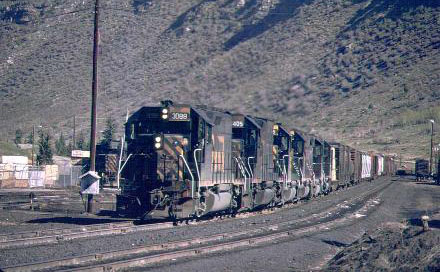
But the main reason never to hop a moving train is, never get on a train without knowing where it's going, otherwise it takes you back into the yards, shunting boxcars around, or 50 miles out into the desert and dumps you by a warehouse and you get stranded for days, or it's a local and takes 8 hours to go 100 miles. If it's going much faster than you can run, you don't touch it.
When you fall off a freight train, you don’t notice the pain, you count your arms and legs.
After that I carried a straight razor for a while, a very stupid weapon in many ways, but it's very difficult to defend yourself against one, razor wounds are almost never fatal, unlike knife wounds, which can be an advantage or disadvantage, got taken off a train in the very deep South someplace, 1963 or 4, I forget where, North Carolina, Georgia, maybe, they searched me all over except for the right front pocket where I had the razor, they never even noticed, put me in the cop car, says, “Y'all evah been awn a chain gang, boy? Y'all gonna git put awn a chain gang ridin' trains in this state”, I was thinking, “How the hell am I going to get rid of this thing?”, finally they let me off out of town and told me to hitchhike. One cop says to the other, what was in his pocket, the first one says, a little piece of leather about that long, that was the razor strop.
In the 70s I was very seriously assaulted in West Virginia, with my wife, who was about 6 months pregnant, about 10 o'clock at night, we was walking down the hill to the car and there was this hillbilly standing at the bottom of the hill shouting “If y’all got a gun y’all bettah git ready t’ use it, ‘cause Ahm’a gonna kick yore ass”.
I didn’t pay any attention to him. He wasn’t much bigger than me but a hell of a lot stronger, I’d worked with him, he was wearing huge work boots, when I came up to car he tried to boot me in the groin, I blocked the kick, he hopped back about ten feet, jumping up and down, shouting “Ah’m a gonna kick yore ass” about fifty times, but he’s ten feet away! Typical hillbilly, I don’t know if you know the type.
The funny thing is, I was carrying two guns, a .38 revolver and a .45 auto, that’s what I was getting out of the car, but neither one of them was loaded, never carry an unloaded gun, either it's loaded or you don't carry it at all, it was a family feud situation, which in that part of the world can be very dangerous, they’ll shoot you in the back, attack you five to one, anything, remember the Hatfield-McCoy feud in West Virginia killed or wounded 125 people in 115 years, there are hundreds of people in some of these families.
After that I never went outside without a weapon, for 3 years, I carried every kind of weapon you can think of, sometimes a sash weight on a chain inside a pillow case, sometimes a chain with a cord through the last loop and tied around my wrist so you can find the end of it in your pocket, it's very hard to defend yourself against a chain, you swing it in a figure 8, but you can't whip with it because you'll break your hand, sometimes a revolver.
I would violate any kind of weapons law if I thought I needed a weapon, anti-gun laws are ridiculous, because they are based on the premise that criminals will obey the law.
Criminals by definition are people who break the law.In the kingdom of the blind, the one-eyed man is king. When guns are outlawed only outlaws will have guns. It’s true. If guns are outlawed and you’ve got a gun, you think everybody else is defenseless. And they are.
In Northern Ireland, you can get life imprisonment for illegal possession of a pistol, that's what Bobby Sands was doing time for, but you need them, because they'll burn your house down over your head, people who live there in the wrong neighbourhood have to have railway ties blocking the doors, buckets of sand to put out fires, screens over the windows, etc.
Which is worse? Getting arrested and searched and spending 2 or 3 years in and out of court, maybe 10 or 15 years in prison, or having your house burnt down over your head with you inside, and your whole family? As it was, I could have killed the guy who assaulted me, a clear-cut case of self-defense, to defend my wife, etc. etc., how do I know what’s he’s going to do? What happens if he disables me and rapes her, or kicks her in the stomach? But because I knew his father would come out of the house next door with a rifle if I produced the pistol, I didn't even show him the weapon. Of course if he'd assaulted me again, it would have been different, I would have had to.
You just count the number of crimes that could have been prevented, or would have been prevented, just because somebody knew, or might have known, that somebody else had a gun, in just that one situation: I count 3 crimes: the first assault, a possible second assault, and my shooting him, guns prevent tens of millions of crimes a year (see MORE GUNS, LESS CRIME by John Lott), I think any law-abiding citizen ought to be allowed to carry a pistol almost anywhere in the country.
Today I believe that a concealed weapon defeats its own purpose, it can’t deter him if he can’t see it, so you’ve got to pull it out and threaten him, which likely as not will just get you killed or sent to prison. Today I believe, whatever weapon you’ve got, carry it openly if you can, strapped to your waist, a sheath knife or a pistol. I knew a workman who carried a .45 strapped to his hip everywhere he went. Nobody ever said a thing.
On the other hand a concealed weapon can act as an “ace in the hole”, if it’s not concealed you’ve shown him your hole card and he knows whether he can beat you or not. Maybe the best is a sheathe knife on your belt and a pistol concealed on your person. That way you can see him and raise him one…
COMMENT BY INTERVIEWER: WHAT CAUSED YOU TO BECOME A TRAMP?
Perhaps the best answer to your last question is contained in RAILROADS, THE GREAT AMERICAN ADVENTURE, by Charlton Ogburn with photos by James A. Sugar, National Geographic Society, p. 98, "Of all the jobs on the railroad, the brakeman's life was the most hazardous. I need not think back far back to remember the line of hanging cords stretched high above the tracks in front of every tunnel to smack anyone standing on a car and warn him to get down. They remained from the days when brakemen trod the plank walkway atop the jolting, lurching freight cars, their task -- when the engineer signaled for brakes -- to turn the iron cranks that stuck up at the end of the cars like steering wheels. And this had to be done regardless of decks sheathed in ice, sometimes in the teeth of a blizzard, perhaps during a swerving mountain descent. ...Why did anyone on earth enter upon a brakeman's life? Well, the weather was not always foul, and THOSE WHO RODE ATOP A FREIGHT PAST RIVERSIDE AND ROLLING HILL, VILLAGE AND FARM, WERE LORDS OF A SPACIOUS AND EVER-CHANGING REALM; THE SIGHT OF THEM WOULD UNSETTLE MEN TIED TO A DULL ROUTINE" (emphasis added).
In 1888, 2,070 railway employees were killed and 20,148 injured, that was before the invention of the air brake and automatic coupler. Many other things remain unchanged.
In a single word: the answer is FREEDOM. America is the only country on earth where Huey Long's slogan EVERY MAN A KING was LITERALLY the truth. I met a tramp who said he started hitting the bottle, lost his job, they foreclosed the mortgage, he lost the house, wife left him, he lost the family, so he hit the freights. He seemed reasonably happy. He was a free man. He could travel anywhere in the country, and had no obligations to anyone, filed no tax returns… What King or Prince could say the same?And what’s the alternative? Pay alimony out of unemployment and watch TV all day? Hoboes ain’t called “Gentlemen of the Road” for nuthin...
You don't need money in America, you don't need shelter, you don't need to buy clothes, you don't need to pay for medical care, you don't need to work, but you can work if you want to, the whole country is yours, literally, you can ride thousands of miles on freight trains with nothing but a bit of loose change, I've done it, sometimes I left home with 25 or 50 cents, rode all over the country and got home with more money than I left with.
You don't need a bedroll because you can always roll up in paper and sleep on cardboard, I rode halfway across the country without even a long-sleeved shirt, then somebody gave me one, but still no jacket, you've always got shelter, a freight car or the Salvation Army, or other rescue missions, they'll give you clean clothes, let you shower, feed you, find you a job, you can do that for 40 years if you want to, I've met men who've done it, 20, 30, 40 years, some of them worked occasionally, some just went from one Salvation Army to another, personally I avoided them, but sometimes they are not too bad, stale food from all the markets, but good food sometimes.
The Sallies are a business too, a tax-deduction business, you can never get stranded in America, you just catch the freight to the next crop, find the Farm Bureau, Employment Office, if you want to work, if you get sick or injured there are the county hospitals, there is nothing like that in socialist Europe, or even Canada. Australia or Mexico, because the railroads are government-owned. In the US the railway cops have to be paid by the railroads, and they've got serious things to worry about. There's no country with the freedom that America used to have, every state was like a different country, but with no border guards, literally, I've got a law book on it, with a section called the Civil Consequences of a Felony Conviction, state by state, whatever you've done and whatever you want to do, you can almost always find a state that will let you do it.
The best things are the 1st, 2nd and 4th Amendments, next the 5th 6th, and 10th. If you've got freedom of speech and press, and freedom to own guns and ammunition, what else do you want?
Of course the Jews, the blacks and the immigrants have destroyed the country as much as they can, and no doubt they will soon succeed completely.
There were no almost racial gangs when I was on the road, except for a few places like L.A., +++Chicago, and parts of New York-New York.
Europeans say America does nothing for the poor, that is a complete lie, a poor man is a king in America compared to socialist Europe. Ever read The Jungle, by Upton Sinclair? The guy works in the meat factories, in the slums, in the end he just hops a freight and goes out west, a whole new world, THAT was the land of limitless opportunities, anything you'd done you could forget about, it was a whole new life, even with a criminal record.
The Jews are destroying everything, with their TV, their control of politics, their corruption of the churches, computers, everything.
When you ride the top of a freight car, hanging onto the roof, especially a fast freight, in a slight rainstorm or windstorm -- I love to see a rainbow from the top of a freight -- or a moonlit night, you see the stars, clouds, sunrise, sunset, distant lightning, screeching brakes, you see those beautiful red signal lights passing you, throwing a soft red glow all over everything, then a green glow when you pass the block, bells ringing, then that beautiful fall in pitch when they pass, dirt, dust, canyons, rivers, landscapes, you can see all around you, you see wild animals, cattle, sheep, American Indians, farmers working in the fields, you feel like the whole country belongs to you, no houses, nothing for miles, the rail follows a completely different route from the highways, very often, there are desolate places where there is NOTHING, absolutely NOTHING, you could get off at a siding and camp for DAYS and then catch the next train to stop at the siding if you wanted to, total isolation.
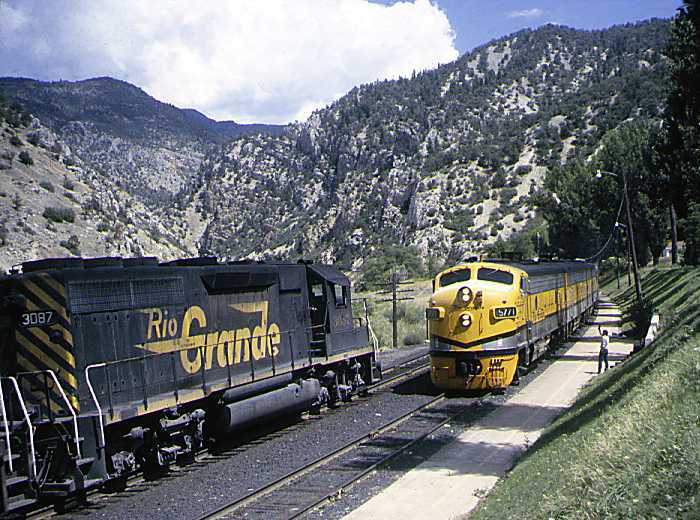
I can go days without eating (8 full days is my record) and 2 or 3 days without sleep, and 2 days without water), fairly easily. Real tramps can sleep on cold steel, in the rain, anything, I can't do that. Jim Hill, who built the Great Northern railway, said "Tramps built America, let 'em ride", a lot of tramps are ex-railroad employees. I met a tramp 70 years old who met Jim Hill, one of the greatest railways of them all. It's a career, it's a whole way of life.
It does not depend on unemployment or welfare, you don’t need them. Undoubtedly many hoboes collect unemployment as seasonal workers, but it’s not essential. What’s essential is the freights and the missions, the crops, the employment offices, nothing else, every mission has a different rule, sometimes it’s one night every 30 days, three nights every 90 days, etc. they’ll do anything for you, find you work if you want it.
WARNING: No occupation is without its particle of risk….
Hoover, Erin, "Police Question Suspect in Boxcar Slayings," The Oregonian, March 7, 1996.
A report on the investigation of Robert Joseph Silveria, suspected of killing two men found in boxcars in Oregon. His involvement in homicides in Arizona, California, Kansas, Montana, Texas and Utah is also mentioned.
Miller, Ellen, "Axe Attack in Freight Car Kills Hobo, Injures Two, Police Say," Denver Post, April 19, 1994. A report about how a hobo was killed and two others were injured when they were attacked with an axe by their travelling companions and thrown off the freight train near Parachute, Colorado on April 16.
A good reason never to ride in boxcars if you can help it. You ride outside, that way if anybody crazy gets in with you, you just climb onto the next car. You can climb or walk from one end of a moving freight train to the other if you want to, they're a mile long, I've done it for 10 or 15 cars or so, just jump or climb, they're designed so you can do that, it’s surprisingly safe.
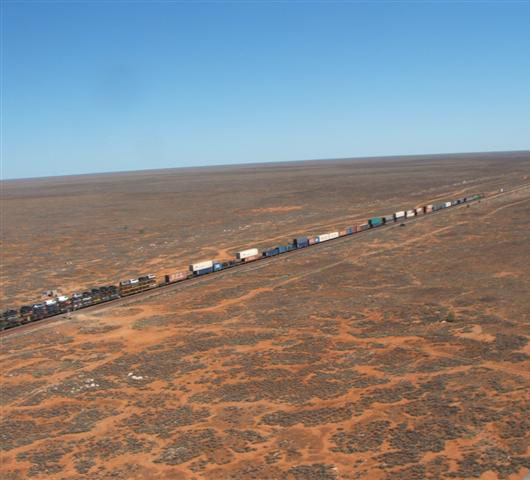
Best place is a gondola or flat car, top of a boxcar is good, but kids throw rocks at you, my brother got shot at that way, plus the cops can see you too easy, I once waved at a cop car from a freight, the train stopped and they took me off, stranded me, I almost got killed trying to hop a fast freight up a grade. Cops have no right to treat you that way, I could only get killed where they left me, they were sadists, they knew that, I’ve got a blank in my memory after that. Jail is a hell of a lot better than losing your legs or becoming a “wingy”, all legs and no arms.
Piggy-backs are good, 3-story, if they're empty, they're the highest, you get the best view of the countryside. Stay away from any automobiles carried on them, if you break into them it's a Federal offense. Be careful.
In the Eastern states some of the lines are electrified, you can hardly hear the trains, I almost got killed by one, I forget where, I was crossing a short trestle on foot, there was no side to it, no railing, nothing, just the tracks and about 6 inches of railroad tie on each side, of course I was looking ahead of me all the time, felt the trestle trembling under my feet, couldn’t understand it, turned around, looked behind me, all around, saw nothing, looked ahead, and saw a passenger train coming towards me at about 80-100 miles an hour, faster than any freight train I ever saw. I ran to the end of the trestle, towards the train, that was the shortest way, I didn’t even look at it, I looked at the ground I had to reach and a fence to the left, I just reached the fence when the engine passed me, I could hardly see it, the engineer was shaking his fist at me. 2 or 3 seconds later I would have been killed instantly. For 40 years, it never even occurred to me that I could have jumped off the trestle. I’ve never told anyone about this before, in fact I’d almost completely forgotten it. Danger does funny things to your mind.
Another time I got on a train in the dark, stood on something, and found it was moving under my feet, it was the axle of the freight car, if the train had been moving fast I would have been killed, other cars (it was a piggy back) with an almost identical design have a trough in the bottom with a floor in it, this one didn't, I was standing on the axle, you could fall right through.
Another time I was walking around inside a boxcar in the dark and there was a huge hole in the bottom of the car, if I'd fallen through it I would have been killed.
You see huge holes in the walls from train wrecks, loads shifting, the force of a train wreck is something you can't imagine, you see 55-foot steel boxcars crumpled up like tinfoil, I'm really not exaggerating, all over the desert, for miles, one time a whole train fell into the Feather River, another fell into the Pacific Ocean on the "grey ghost" the Southern Pacific Coast line, L.A.-Frisco, all automobile cars, piggybacks, people were stealing batteries out of the automobiles, hundreds of them, the railroad was insured, so to put an end to the theft they bulldozed all the automobiles into the ocean. Came back 6 months later and fished them all out.
On the Katy railroad, also the Frisco, I think, they had one derailment a day someplace on their lines, they didn't have the money to maintain the track. The big lines are safer but derailment is still the biggest danger, next to getting chucked off a train by somebody that climbs in with you. Nam was going on and life was cheap. I had friends killed and they were heroes, why shouldn't I take a chance doing something for the hell of it?
I rode all the major American railroads as far as they would go, freight trains all the way – Southern Pacific, Santa Fe, Union Pacific, Northern Pacific, Great Northern, New York Central, Pennsylvania, Atlantic Coast Line-Sea Board Air Line, a lot of these lines have merged now, Western Pacific, and the greatest of them all, the Denver and Rio Grande.
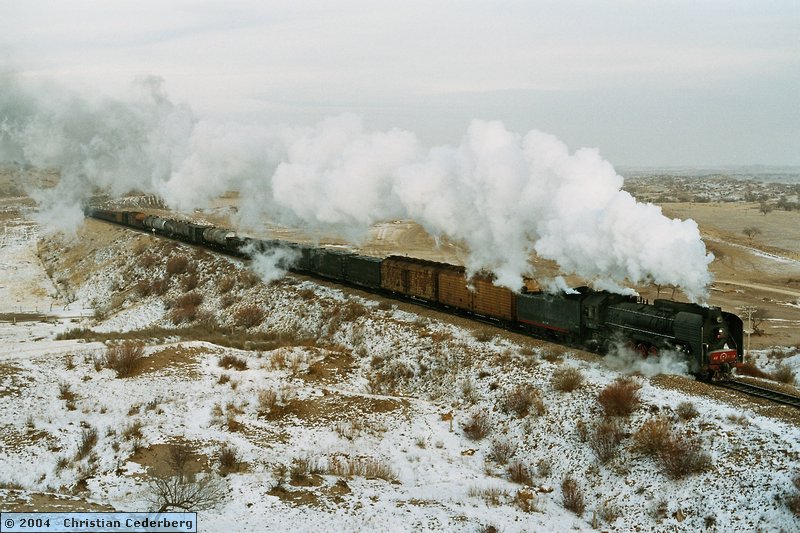
I never rode the Frisco, I always wanted to, it went from Memphis to Little Rock to Tulsa or Oklahoma City, I forget which, I think, Tulsa == (my brother was in jail there for a while, vagrancy, he’s like me but worse, in California he stole a 50-ton tank from the National Guard, just to go joy-riding, nobody noticed because everybody thought it was the National Guard taking it out for a spin, he drove it right down the main street of town, leaving big tracks in the street, abandoned it, never got caught, in Tulsa, they couldn’t hold him on suspicion for more than 24 hours on any one charge without bringing him before a judge, so they kept changing the charge every day for two weeks, finally they, said, six months for vagrancy or you join the Army, he joined up and got into the Green Berets, he was a very good soldier) == to Albuquerque NM, I think. Then you had to catch the Santa Fe or the Denver and Rio Grande, one of the greatest railroads in America.
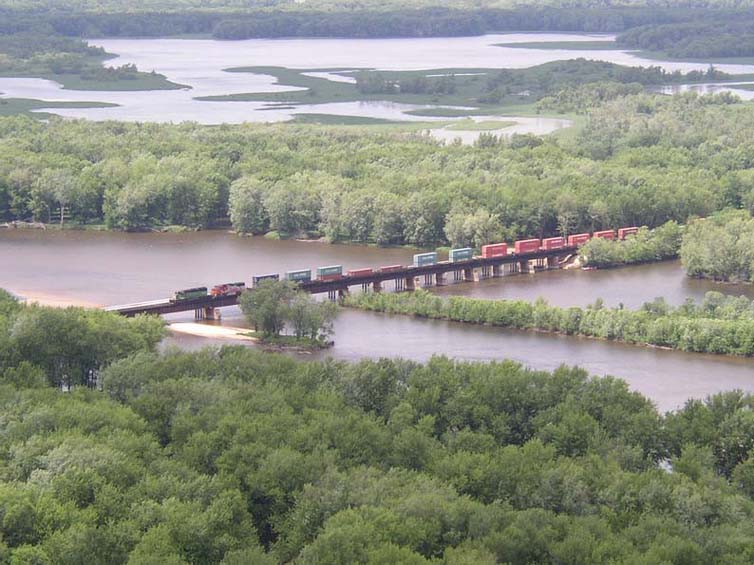
The Western Pacific was one my favorites, the Union Pacific was the most dangerous for cops, but I rode their lines for 2000 miles and never saw a cop. The most dangerous town in America for cops was Cheyenne Wyo., I went through there with no problem, in one town, the train was leaving, a cop car comes roaring along at top speed, lets a guy out of the car, he runs as fast as he can, we help him into the boxcar, he said he was in jail, and the judge said, “If we let you out of jail, will you catch the next train out of town?” He says, “I'll catch the one that just left”, they put him in a cop car and raced to the freight yard.
It costs money to keep you in jail, and all they get out of you is 2 for 1 -- 60 days if you don't work, 30 days if you work -- maybe for a 100 dollar fine, but it costs them maybe 5 bucks a day to keep you in jail, and your work is worth almost nothing. I talked to one tramp who got 30 days for panhandling, got out of jail, panhandled again, same town, got another 30 in the same jail.
I spent very little time in jail, usually at my own request, it's like the Salvation Army, they'll put you up if you say you have no place to go. You have to sign a register saying you spent the night voluntarily. The official name of the register was REGISTER OF TRAMPS HOUSED IN ... CITY JAIL.
In one jail there was a big inscription, carved deep in the wall, saying I WISH I WAS DEAD, sloping downwards. I wasn't scared of cops, I used to walk right up to them and ask them a question, even if I was doing something obviously illegal, it's the best thing to do. Most cops are OK if you treat them with respect. One of them bought me a fairly expensive bus ticket one time, in St. Louis MO, paid for it and just gave it to me, I treated it as a loan and repaid him in a couple of weeks, but if you act like you got a guilty conscience, they're on you like a ton of bricks. Tramps are like sailors, half their conversation is geography and technical talk. My last trip was Los Angeles to Detroit in 19--, took me 9 days, of course not direct, I went through all the Northern states…
COMMENT BY INTERVIEWER: MY FAMILY CAME TO AMERICA FOR THAT FREEDOM. AMERICA WAS A HOPE FOR HUMANITY. HOW HORRIBLE TO WITNESS WHAT IS GOING ON.
Freedom is everything, and America is the country where they had the most of it, and Americans are throwing it away with both hands. It's strange, isn't it? America is a universe, I could send you photos of places in America that you wouldn't believe possible, dilapidated shacks with people living in them, and reasonably happy too.
Another thing about America, at one time it was the realization of Ben Klassen's dream of a White World with one common language for all White People, I went to school with people with German, Czech, Polish, Irish Protestant and Catholic names, Scots names, Italian, none of them even knew these names were German or whatever, they never even thought about it. I went to school with a kid named O'Malley, O'Malley is an Irish Protestant name, my real name is Irish Protestant, in Northern Ireland we wouldn't even be in the same school, but in America we were all just Americans, nobody even thought about it, you see? All those immigrants could come over and just forget about all those centuries of resentments and recriminations (many of which simply cancelled each other out anyway) and just forget about all of it. That would never be possible in Europe. One kid I went to school with was named Calabrese, it never occurred to anybody that this is an Italian name, Calabria is an agricultural region in southern Italy with extreme poverty and a lot of Mafia, it's like Sicily, Catania is even worse, nobody even thought about it. Another kid was named Marona, again, obviously Italian, nobody ever thought about it.
It was a whole new world, and of course it was all white, I never went to school with any non-whites, except for about 3 Mexicans, that was all. People joked at them a little bit but there was no resentment, the resentment came with desegregation in the 50s and forced racial integration in the 1960s. More than anything else, freedom means gun ownership, if you've got a gun and plenty of ammo, if you can ride the freights, you're free, everything else is just talk.
One time in January it was so cold that I found two newspapers and put them inside my coat to keep warm. It's very effective. Then I lost one, I took it out to sit on it. When you've only got two newspapers and you lose one, that's poverty, actually you put them inside your shirt, not inside your coat. Sometimes in the boxcars you can find long sheets of wrapping paper, and if you roll up in them it's as warm as a sleeping bag, the danger is it's a bit difficult to extricate yourself if somebody climbs in and decides to hit you on the head.
I sometimes wonder if I acquired my insomnia on these freight train trips, because you wake up at the slightest sound, and every time it stops, partly for fear of being set off on a siding near a warehouse someplace and seeing the train sail away without you, and partly out of fear of the wrong person climbing in with you.
When I got home I found I couldn't sleep on a soft surface or without all the noise and bumping and jolting, I slept on a hardwood floor for a while, then a carpeted floor for much longer, but I missed the motion.
It's like a roller coaster, but much bumpier, the trains can jerk you back and forth 2 or 3 feet at a time, you get full of splinters, taking up slack in the couplings, another danger is moving loads, which can crush you -- I’ve slept in concrete pipes on flatcars, you’re warm in there, wake up at daybreak and see the sunrise, but if the friction banding breaks you’re going to get killed -- or the boxcar door shutting on you, which can cut your head off, this actually happened, they found a human head in the freight yards at Spokane, and a week later they found the body inside a boxcar in Seattle. He was looking out the door when they humped the train, and chopp-o.
When you ride with a load, you ride the FRONT END.
When you face the engine the door to your RIGHT slides BACK to close, and the one on your LEFT slides FORWARD to close, so you're far safer to get in if the door is open on your LEFT, facing the engine. If you get locked in, you can get stuck in for days. They don't open from the inside. You can’t suffocate, it’s not like the ice compartment on a refrigerator car, but you can get locked in, good, until somebody hears you and opens the door.
Did you know you can get 15 years for breaking the seal on a boxcar? It has to be that way, because they can’t lock them individually and send the keys all over the country. Bush wants to make it a Federal offense just to trespass on railroad property. I believe this has already been enacted in Iowa. When that's done and all the guns are taken away there will be no freedom left in America.
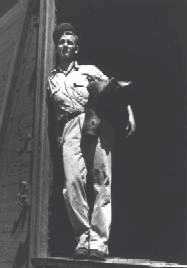
Of course people will still do it. It's the last refuge for a lot of people. If you lose your house, your family, just take to the freights, you’ve always got a home, and friends too – most of the time – the tramps…
They share everything, food, wine, money, cigarettes, some of them are really funny guys, I remember one who said, “Ah’m so close tuh home Ah kin smell mah bruthuh’s feet”.
Another tramp said he’d just lost his false teeth, drunk, puking out a boxcar door, he said he got drunk in a freight yard, on the tracks, using the rail as a pillow, the car knockers found him and pulled him off the tracks just before a train came through, when he sobered up and found out what had happened he got so scared he had to get drunk again. Another tramp says, “Y’all gonna hafta go awn a liquid diet”, he says, “Liquid diet is what Ah’ve been awn, that’s how Ah lost mah teeth”. The brakes were screeching so loud it was almost deafening. This was downhill on the Feather River Gorge, Western Pacific, riding outside, we was filthy dirty, covered with metal dust from the brake shoes, the first tramp says, “Ah’m nevah gonna ra-a-hd anuthah freight train agin as lawng as Ah li-uv”. The first one says, “Wh-a-a-a-h, she-e-e-i-i-i-i-t, this is ha-a-a-a-a-a-a-a-gh livin’”… He was right, too…
He could roll the most beautiful cigarettes, he said he was in jail and was rolling cigarettes for all the jailbirds. It inspired me so much I learned to roll them myself almost as well. I can roll a very good one. The only trouble is, I hate smoking them. I only like rolling them. It may come in handy yet. The way things are going, I’ll have the same opportunity he had one day... in jail...
Another tramp was about fifty or sixty and said he’d been riding the freights since he was 13. He said he had, I forget, 8 or 12 or 13 brothers and sisters, in some rural area, they didn’t worry about it, every time they had another baby his mother just put another cup of water in the gravy. I think they had the right idea.
Anyway, one night there was a fox in the chicken house, and his “pappy” sent him out to the chicken coop with a double-barrel shot gun, in his night shirt, he said, “Ah’m a-standin’ there in the doorway t’ this hyeah hen ha-ouse with the shot gun in mah hands when mah dog come outa the ha-ouse and stuck his cold nose up mah asshole and startin’ lickin’ mah balls, and Ah pull both triggahs awn thet there shot gun, and killed every lickin’ hen in that hen ha-ouse. Mah pappy done kicked me outa thuh ha-ouse, and Ah bin awn the road ever sa-ince….”
I remember a couple of negroes talking about farm work, the second one had never done any, the first one says, “Ebbah been in de penitentiary?”, the other one says, “Sho’ have”, the first one says, “Oh yeah? Put ‘er deah!” (handshakes, grins, much hilarity), “Well, it’s lak dat, you gotcha bay-ud, you gotcha blanket, an’ on Saturday night dere’s de biggest crap game you ebba saw… Ah used to woik de crops just to get into de crap games…”
Another tramp told me he made so much money working the crops he took a taxi to the freight yard and got in a boxcar with 300 dollars in cash in his pocket, got drunk and passed out, when he woke up the money was gone. That’s hoboes. That’s the freights.
That explains a lot of the murders. On the other hand, most of the tramps I met had to pool their cash just to buy wine. In the jungles, most of the murders are probably not robbery at all, but fights over wine bottles. Another reason is, they steal each other's Social Security cards to collect food stamps. Every tramp has a Social Security card, even if he doesn't have anything else, because they use them in the Sallies. Men have committed multiple murders for this reason alone...
On one occasion a negro and a white man climbed in the boxcar together, the negro pulled out a long-barrelled revolver, looked like a .38, which he immediately proceeded to reload, spilling cartridges all over the floor, then he says, “Ah’m almos’ outa ammunition”, the white tramp says, “Better git awf and go bah sum”, so they hopped off the train and went into town to buy ammo. We were glad to see them go, let me tell you. One of the tramps was from Tennessee, and kept saying, “Bad ‘nuff jus’ bay-in’ a na-a-gger, bad ‘nuff jus’ bay-in’ a na-a-gger…” Eventually I came to agree with him…
Wine cost a dollar a gallon or little more in those days, the cheapest wine in the country was called Pride of Cucamonga, about 27 cents a quart, something like that, 20% alcohol. “Wine dreams” came cheap, so did bats and snakes…in the 70s, they started to drink something called MAD DOG, two bucks a pint, that stuff will knock you on your ass…
I wasn’t a drinker, I was a dreamer: there’s a difference. One of the missions had a huge oil painting of a tramp locked up inside a bottle, like an animal in a cage, saying PLEASE GOD, GET ME OUT…
It’s strange there’s never been a really good novel or film about the freights, because it’s been a unique feature of American life for 120 years. A lot of good sociological studies, etc.
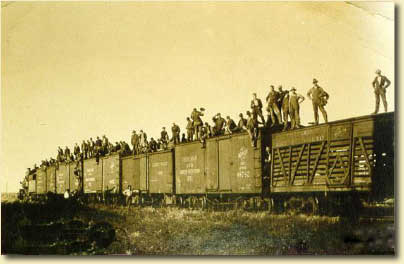
Migrant workers at harvest time, 1914
Communist arch-liar (but very good novelist) "Jan Valtin" (Richard Krebs, 1940) said that America was the European's dream, because it was a country where Communist party organizers could ride thousands of miles on freight trains with nothing but a red card and a dollar or two, without ever encountering a border guard.
That was the "hope for humanity", as much as the Constitution, gun ownership, or anything else.
Now the capitalists want everything their own way. They want to create mass unemployment, destroy the middle class, fill the country with wage-slave immigrants, run the bums out of town the way they always did, but they no longer want to give them anyplace to go, or any way to get there.
Oh well, let the scabs kill Americans drunk-driving in their uninsured junk cars by the tens of millions.
All we need is another war to put the price of gas up!
U.S.A. = R.I.P.
- C.P. Sept. 14, 2007
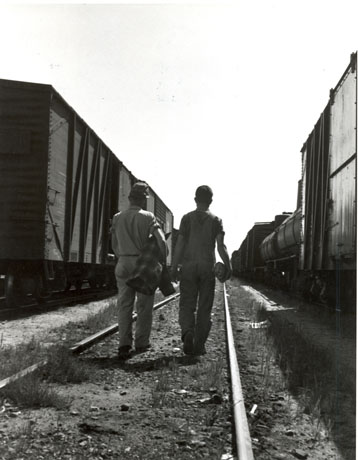
Catching a freight, 1934
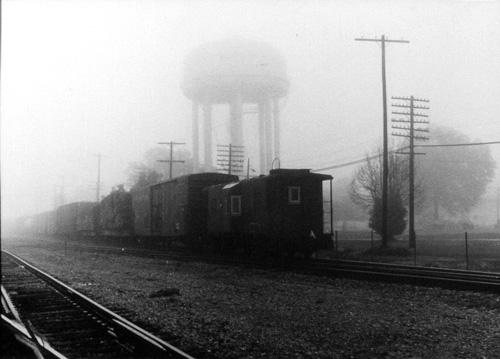
Long-distance freight with caboose in early morning fog.
- "Fitter where it died, to tell, that it lived at all; farewell."
---
I don’t think Jack Kerouac knew a thing about the freights. What we need is somebody like Jack London or B. Traven (“the jungle novels”), but writing about the freights, not Mexico, or Pío Baroja, in Spanish, with his novels about sailing ships, pirates and slave-traders.
A book called WAITING FOR NOTHING, written in the 30s, describes hopping a freight so fast his feet hit the side of the car… I don’t see how that’s possible. You’re not taking a perpendicular leap at the ladders as they zip past you, you’re running parallel to the train, one hand is always closer than the other, so you always miss with the outside hand if it’s going too fast… a good way to get killed no matter how you do it.
The film BOUND FOR GLORY, about Woodie Guthrie, with John Carradine Jr., isn't much better...try to hop into a moving boxcar the way he does, putting both hands on the floor of the car and pushing yourself up, like you were boosting yourself up on top of a wall, on a moving train, you'll get cut in half the first time you try it, because if the train is moving to your left, your legs will swing to your right, then under the train, and chopp-o... a wall isn't moving. Also, he always grabs the rear end of the car... there's no reason to do it, the whole train is going the same speed...
It's funny how memories haunt you, there was somebody who put graffiti on freight cars someplace, showing a Mexican with a sombrero and poncho asleep under a palm tree, a good drawing, and it said HERBIE. I saw those all over America. Then I saw one that showed an African with a grass skirt, a spear, and a bone in his nose, with a palm tree, and it said I AM HERBIE…
There’s a weakness for tramps in the family. My mother’s father was a doctor, Army doctor during WWI, and he used to bring tramps home for dinner during the Depression, always without warning. My mother’s mother never minded… He told a story about a colored soldier during WWI, a malingerer, says, “Doctah, it hoit hyeah, an’ deah…” he says, “Does this hurt?” The answer was always, “Oh yassuh, dat hoit terrible”, so he says, well, looks like we’re going to have to operate, starts getting out all the surgical saws and knives, all kinds of instruments and equipment, and the negro says, “Doctah…” rolling his eyes, and rubbing his stomach, with a great big grin on his face, “it look lak dat pain jus’ gone away...”
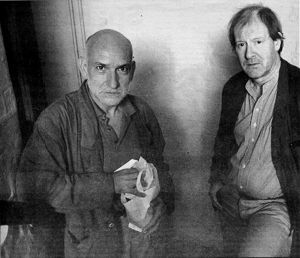
My grandfather used to tell that story and laugh and laugh….
His tombstone says only one thing: name, date of birth, date of death, and four words:
“He Healed the Sick”.
I never knew him, I wish I had.
* EXPLANATORY NOTE: According to a book on the “Zodiac killer” in California, written by Robert Graysmith, serial killing was never a problem in America until the 1960s, when a Supreme Court decision made it almost impossible to institutionalize the mentally ill without their written consent, regardless of how obviously dangerous they were. In California, the number of hospital beds for the mentally ill was reduced from 55,000 to 5,000, so all these helpless, homeless, potentially dangerous people were thrown out onto the streets. Presumably, and quite naturally, many of them took to the freights… Caveat hobobum.
FINAL COMMENT BY INTERVIEWER: THANK YOU FOR YOUR COMMENTS ON LIFE AND DEATH IN AMERICA.
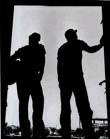
MAY 15, 2002
© Copyright 2002 by V. A. Grant.
May not be reproduced, in whole or in part, in any manner whatsoever, by electronic or any other means, without the express prior written permission of Mr. V.A. Grant. REPRODUCED BY PERMISSION. ALL RIGHTS RESERVED
COMMENT BY CARLOS PORTER:
Speaking of Jack London, he is said to have written the following:
THE TRAMP
(Speech first given at the Academy of Sciences Hall in San Francisco, January 19, 1902)
Mr. Francis O'Neil, General Superintendent of Police, Chicago, speaking of the tramp, says: "Despite the most stringent police regulations, a great city will have a certain number of homeless vagrants to shelter through the winter." "Despite,"--mark the word -- a confession of organized helplessness as against unorganized necessity. If police regulations are stringent and yet fail, then that which makes them fail, namely, the tramp, must have still more stringent reasons for succeeding. This being so, it should be of interest to inquire into these reasons, to attempt to discover why the nameless and homeless vagrant sets at naught the right arm of the corporate power of our great cities, why all that is weak and worthless is stronger than all that is strong and of value.
Mr. O'Neil is a man of wide experience on the subject of tramps. He may be called a specialist. As he says of himself: "As an old-time desk sergeant and police captain, I have had almost unlimited opportunity to study and analyze this class of floating population, which seeks the city in winter and scatters abroad through the country in the spring." He then continues: "This experience reiterated the lesson that the vast majority of these wanderers are of the class with whom a life of vagrancy is a chosen means of living without work." Not only is it to be inferred from this that there is a large class in society which lives without work, for Mr. O'Neil's testimony further shows that this class is forced to live without work.
He says: "I have been astonished at the multitude of those who have unfortunately engaged in occupations which practically force them to become loafers for at least a third of the year. And it is from this class that the tramps are largely recruited. I recall a certain winter when it seemed to me that a large portion of the inhabitants of Chicago belonged to this army of unfortunates. I was stationed at a police station not far from where an ice harvest was ready for the cutters. The ice company advertised for helpers, and the very night this call appeared in the newspapers our station was packed with homeless men, who asked shelter in order to be at hand for the morning's work. Every foot of floor space was given over to these lodgers and scores were still unaccommodated."
And again: "And it must be confessed that the man who is willing to do honest labor for food and shelter is a rare specimen in this vast army of shabby and tattered wanderers who seek the warmth of the city with the coming of the first snow." Taking into consideration the crowd of honest laborers that swamped Mr. O'Neil's station-house on the way to the ice-cutting, it is patent, if all tramps were looking for honest labor instead of a small minority, that the honest laborers would have a far harder task finding something honest to do for food and shelter. If the opinion of the honest laborers who swamped Mr. O'Neil's station-house were asked, one could rest confident that each and every man would express a preference for fewer honest laborers on the morrow when he asked the ice foreman for a job.
And, finally, Mr. O'Neil says: "The humane and generous treatment which this city has accorded the great army of homeless unfortunates has made it the victim of wholesale imposition, and this well-intended policy of kindness has resulted in making Chicago the winter Mecca of a vast and undesirable floating population." That is to say, because of her kindness, Chicago had more than her fair share of tramps; because she was humane and generous she suffered wholesale imposition. From this we must conclude that it does not do to be humane and generous to our fellow-men when they are tramps. Mr. O'Neil is right, and that this is no sophism it is the intention of this article, among other things, to show.
In a general way we may draw the following inferences from the remarks of Mr. O'Neil: (1) The tramp is stronger than organized society and cannot be put down; (2) The tramp is "shabby," "tattered," "homeless," "unfortunate"; (3) There is a "vast" number of tramps; (4) Very few tramps are willing to do honest work; (5) Those tramps who are willing to do honest work have to hunt very hard to find it; (6) The tramp is undesirable.
To this last let the contention be appended that the tramp is only personally undesirable; that he is negatively desirable; that the function he performs in society is a negative function; and that he is the by-product of economic necessity.
It is very easy to demonstrate that there are more men than there is work for men to do. For instance, what would happen to-morrow if one hundred thousand tramps should become suddenly inspired with an overmastering desire for work? It is a fair question. "Go to work" is preached to the tramp every day of his life. The judge on the bench, the pedestrian in the street, the housewife at the kitchen door, all unite in advising him to go to work. So what would happen to-morrow if one hundred thousand tramps acted upon this advice and strenuously and indomitably sought work? Why, by the end of the week one hundred thousand workers, their places taken by the tramps, would receive their time and be "hitting the road" for a job.
Ella Wheeler Wilcox unwittingly and uncomfortably demonstrated the disparity between men and work. ["From 43 to 52 percent of all applicants need work rather than relief." -- Report of the Charity Organization Society of New York City.] She made a casual reference, in a newspaper column she conducts, to the difficulty two business men found in obtaining good employees. The first morning mail brought her seventy-five applications for the position, and at the end of two weeks over two hundred people had applied.
Still more strikingly was the same proposition recently demonstrated in San Francisco. A sympathetic strike called out a whole federation of trades' unions. Thousands of men, in many branches of trade, quit work-- draymen, sand teamsters, porters and packers, longshoremen, stevedores, warehousemen, stationary engineers, sailors, marine firemen, stewards, sea-cooks, and so forth -- an interminable list. It was a strike of large proportions. Every Pacific coast shipping city was involved, and the entire coasting service, from San Diego to Puget Sound, was virtually tied up. The time was considered auspicious. The Philippines and Alaska had drained the Pacific coast of surplus labor. It was summer-time, when the agricultural demand for laborers was at its height, and when the cities were bare of their floating populations. And yet there remained a body of surplus labor aufficient to take the places of the strikers. No matter what occupation, sea-cook or stationary engineer, sand teamster or warehouseman, in every case there was an idle worker ready to do the work. And not only ready but anxious. They fought for a chance to work. Men were killed, hundreds of heads were broken, the hospitals were filled with injured men, and thousands of assaults were committed. And still surplus laborers, "scabs," came forward to replace the strikers.
The question arises: Whence came this second army of workers to replace the first army? One thing is certain: the trades' unions did not scab on one another. Another thing is certain: no industry on the Pacific slope was crippled in the slightest degree by its workers being drawn away to fill the places of the strikers. A third thing is certain: the agricultural workers did not flock to the cities to replace the strikers. In this last instance it is worth while to note that the agricultural laborers wailed to High Heaven when a few of the strikers went into the country to compete with them in unskilled employments. So there is no accounting for this second army of workers. It simply was. It was there all this time, a surplus labor army in the year of our Lord 1901, a year adjudged most prosperous in the annals of the United States.[Mr. Leiter, who owns a coal mine at the town of Zeigler, Illinois, in an interview printed in the Chicago Record-Herald of December 6, 1904, said: "When I go into the market to purchase labor, I propose to retain just as much freedom as does a purchaser in any other kind of market...There is no difficulty whatever in obtaining labor, for the country is full of unemployed men."]
The existence of the surplus labor army being established, there remains to be established the economic necessity for the surplus labor army. The simplest and most obvious need is that brought about by the fluctuation of production. If, when production is at low ebb, all men are at work, it necessarily follows that when production increases there will be no men to do the increased work. This may seem almost childish, and, if not childish, at least easily remedied. At low ebb let the men work shorter time; at high flood let them work overtime. The main objection to this is, that it is not done, and that we are considering what is, not what might be or should be.
Then there are great irregular and periodical demands for labor which must be met. Under the first head come all the big building and engineering enterprises. When a canal is to be dug or a railroad put through, requiring thousands of laborers, it would be hurtful to withdraw these laborers from the constant industries. And whether it is a canal to be dug or a cellar, whether five thousand men are required or five, it is well, in society as at present organized, that they be taken from the surplus labor army. The surplus labor army is the reserve fund of social energy, and this is one of the reasons for its existence.
Under the second head, periodical demands, come the harvests. Throughout the year, huge labor tides sweep back and forth across the United States. That which is sown and tended by few men, comes to sudden ripeness and must be gathered by many men; and it is inevitable that these many men form floating populations. In the late spring the berries must be picked, in the summer the grain garnered, in the fall the hops gathered, in the winter the ice harvested. In California a man may pick berries in Siskiyou, peaches in Santa Clara, grapes in the San Joaquin, and oranges in Los Angeles, going from job to job as the season advances, and traveling a thousand miles ere the season is done. But the great demand for agricultural labor is in the summer. In the winter, work is slack, and these floating populations eddy into the cities to eke out a precarious existence and harrow the souls of the police officers until the return of warm weather and work. If there were constant work at good wages for every man who would harvest the crops?
But the last and most significant need for the surplus labor army remains to be stated. This surplus labor acts as a check upon all employed labor. It is the lash by which the masters hold the workers to their tasks, or drive them back to their tasks when they have revolted. It is the goad which forces the workers into the compulsory "free contracts" against which they now and again rebel. There is only one reason under the sun that strikes fail, and that is because there are always plenty of men to take the strikers' places.
The strength of the union to-day, other things remaining equal, is proportionate to the skill of the trade, or, in other words, proportionate to the pressure the surplus labor army can put upon it. If a thousand ditch-diggers strike, it is easy to replace them, wherefore the ditch-diggers have little or no organized strength. But a thousand highly skilled machinists are somewhat harder to replace, and in consequence the machinist unions are strong. The ditchdiggers are wholly at the mercy of the surplus labor army, the machinists only partly. To be invincible, a union must be a monopoly. It must control every man in its particular trade, and regulate apprentices so that the supply of skilled workmen may remain constant; this is the dream of the "Labor Trust" on the part of the captains of labor.
Once, in England, after the Great Plague, labor awoke to find there was more work for men than there were men to work. Instead of workers competing for favors from employers, employers were competing for favors from the workers. Wages went up and up, and continued to go up, until the workers demanded the full product of their toil. Now it is clear that, when labor receives its full product, capital must perish. And so the pygmy capitalists of that post-Plague day found their existence threatened by this untoward condition of affairs. To save themselves, they set a maximum wage, restrained the workers from moving about from place to place, smashed incipient organization, refused to tolerate idlers, and by most barbarous legal penalties punished those who disobeyed. After that, things went on as before.
The point of this, of course, is to demonstrate the need of the surplus labor army. Without such an army, our present capitalist society would be powerless. Labor would organize as it never organized before, and the last least worker would be gathered into the unions. The full product of toil would be demanded, and capitalist society would crumble away . Nor could capitalist society save itself as did the post-Plague capitalist society. The time is past when a handful of masters, by imprisonment and barbarous punishment, can drive the legions of the workers to their tasks. Without a surplus labor army, the courts, police, and military are impotent. In such matters the function of the courts, police, and military is to preserve order, and to fill the places of strikers with surplus labor. If there be no surplus labor to instate, there is no function to perform; for disorder arises only during the process of instatement, when the striking labor army and the surplus labor army clash together. That is to say, that which maintains the integrity of the present industrial society more potently than the courts, police, and military is the surplus labor army.
It has been shown that there are more men than there is work for men, and that the surplus labor army is an economic necessity. To show how the tramp is a by-product of this economic necessity, it is necessary to inquire into the composition of the surplus labor army. What men form it? Why are they there? What do they do?
In the first place, since the workers must compete for employment, it inevitably follows that it is the fit and efficient who find employment. The skilled worker holds his place by virtue of his skill and efficiency. Were he less skilled, or were he unreliable or erratic, he would be swiftly replaced by a stronger competitor. The skilled and steady employments are not cumbered with clowns and idiots. A man finds his place according to his ability and the needs of the system, and those without ability, or incapable of satisfying the needs of the system, have no place. Thus, the poor telegrapher may develop into an excellent wood-chopper. But if the poor telegrapher cherishes the delusion that he is a good telegrapher, and at the same time disdains all other employments, he will have no employment at all, or he will be so poor at all other employments that he will work only now and again in lieu of better men. He will be among the first let off when times are dull, and among the last taken on when times are good. Or, to the point, he will be a member of the surplus labor army.
So the conclusion is reached that the less fit and less efficient, or the unfit and inefficient, compose the surplus labor army. Here are to be found the men who have tried and failed, the men who cannot hold jobs -- the plumber apprentice who could not become a journeyman, and the plumber journeyman too clumsy and dull to retain employment; switchmen who wreck trains; clerks who cannot balance books; blacksmiths who lame horses; lawyers who cannot plead; in short, the failures of every trade and profession, and failures, many of them, in divers trades and professions. Failure is writ large, and in their wretchedness they bear the stamp of social disapprobation. Common work, any kind of work, wherever or however they can obtain it, is their portion.
But these hereditary inefficients do not alone compose the surplus labor army. There are the skilled but unsteady and unreliable men; and the old men, once skilled, but, with dwindling powers, no longer skilled. And there are good men, too, splendidly skilled and efficient, but thrust out of the employment of dying or disaster-smitten industries. In this connection it is not out of place to note the misfortune of the workers in the British iron trades, who are suffering because of American inroads. And, last of all, are the unskilled laborers, the hewers of wood and drawers of water, the ditch-diggers, the men of pick and shovel, the helpers, lumpers, roustabouts. If trade is slack on a seacoast of two thousand miles, or the harvests are light in a great interior valley, myriads of these laborers lie idle, or make life miserable for their fellows in kindred unskilled employments.
A constant filtration goes on in the working world, and good material is continually drawn from the surplus labor army. Strikes and industrial dislocations shake up the workers, bring good men to the surface and sink men as good or not so good. The hope of the skilled striker is in that the scabs are less skilled, or less capable of becoming skilled; yet each striker attests to the efficiency that lurks beneath. After the Pullman strike, a few thousand railroad men were chagrined to find the work they had flung down taken up by men as good as themselves.
But one thing must be considered here. Under the present system, if the weakest and least fit were as strong and fit as the best, and the best were correspondingly stronger and fitter, the same condition would obtain. There would be the same army of employed labor, the same army of surplus labor. The whole thing is relative. There is no absolute standard of efficiency.
Comes now the tramp. And all conclusions may be anticipated by saying at once that he is a tramp because some one has to be a tramp. If he left the "road" and became a very efficient common laborer, some ordinarily efficient common laborer would have to take to the "road." The nooks and crannies are crowded by the surplus laborers; and when the first snow flies, and the tramps are driven into the cities, things become overcrowded and stringent police regulations are necessary.
The tramp is one of two kinds of men: he is either a discouraged worker or a discouraged criminal. Now a discouraged criminal, on investigation, proves to be a discouraged worker, or the descendant of discouraged workers; so that, in the last analysis, the tramp is a discouraged worker. Since there is not work for all, discouragement for some is unavoidable. How, then, does this process of discouragement operate?
The lower the employment in the industrial scale, the harder the conditions. The finer, the more delicate, the more skilled the trade, the higher is it lifted above the struggle. There is less pressure, less sordidness, less savagery. There are fewer glass-blowers proportionate to the needs of the glass-blowing industry than there are ditch-diggers proportionate to the needs of the a industry. And not only this, for it requires a glass- blower to take the place of a striking glass-blower, while any kind of a striker or out-of- work can take the place of a ditch-digger. So the skilled trades are more independent, have more individuality and latitude. They may confer with their masters, make demands, assert themselves. The unskilled laborers, on the other hand, have no voice in their affairs. The settlement of terms is none of their business. "Free contract" is all that remains to them. They may take what is offered, or leave it. There are plenty more of their kind. They do not count. They are members of the surplus labor army, and must be content with a hand-to- mouth existence.
The reward is likewise proportioned. The strong, fit worker in a skilled trade, where there is little labor pressure, is well compensated. He is a king compared with his less fortunate brothers in the unskilled occupations where the labor pressure is great. The mediocre worker not only is forced to be idle a large portion of the time, but when employed is forced to accept a pittance. A dollar a day on some days and nothing on other days will hardly support a man and wife and send children to school. And not only do the masters bear heavily upon him, and his own kind struggle for the morsel at his mouth, but all skilled and organized labor adds to his woe. Union men do not scab on one another, but in strikes, or when work is slack, it is considered "fair" for them to descend and take away the work of the common laborers. And take it away they do; for, as a matter of fact, a well- fed, ambitious machinist or a coremaker will transiently shovel coal better than an ill-fed, spiritless laborer.
Thus there is no encouragement for the unfit, inefficient, and mediocre. Their very inefficiency and mediocrity make them helpless as cattle and add to their misery. And the whole tendency for such is downward, until, at the bottom of the social pit, they are wretched, inarticulate beasts, living like beasts, breeding like beasts, dying like beasts. And how do they fare, these creatures born mediocre, whose heritage is neither brains nor brawn nor endurance? They are sweated in the slums in an atmosphere of discouragement and despair. There is no strength in weakness, no encouragement in foul air, vile food, and dank dens. They are there because they are so made that they are not fit to be higher up; but filth and obscenity do not strengthen the neck, nor does chronic emptiness of belly stiffen the back.
For the mediocre there is no hope. Mediocrity is a sin. Poverty is the penalty of failure, -- poverty, from whose loins spring the criminal and the tramp, both failures, both discouraged workers. Poverty is the inferno where ignorance festers and vice corrodes, and where the physical, mental, and moral parts of nature are aborted and denied.
That the charge of rashness in splashing the picture be not incurred, let the following authoritative evidence be considered: first, the work and wages of mediocrity and inefficiency, and, second, the habitat:
The New York Sun of February 28, 1901, describes the opening of a factory in New York City by the American Tobacco Company. Cheroots were to be made in this factory in competition with other factories which refused to be absorbed by the trust. The trust advertised for girls. The crowd of men and boys who wanted work was so great in front of the building that the police were forced with their clubs to clear them away. The wage paid the girls was $2.50 per week, sixty cents of which went for car fare. [In the San Francisco Examiner of November 16, 1904, there is an account of the use of fire-hose to drive away three hundred men who wanted work at unloading a vessel in the harbor. So anxious were the men to get the two or three hours' job that they made a veritable mob and had to be driven off.
Miss Nellie Mason Auten, a graduate student of the department of sociology at the University of Chicago, recently made a thorough investigation of the garment trades of Chicago. Her figures were published in the American Journal of Sociology, and commented upon by the Literary Digest. She found women working ten hours a day, six days a week, for forty cents per week (a rate of two-thirds of a cent an hour). Many women earned less than a dollar a week, and none of them worked every week. The following table will best summarize Miss Austen's investigations among a portion of the garment-workers:
[DELETION]
Walter A. Wyckoff, who is as great an authority upon the worker as Josiah Flynt is on the tramp, furnishes the following Chicago experience:
"Many of the men were so weakened by the want and hardship of the winter that they were no longer in condition for effective labor. Some of the bosses who were in need of added hands were obliged to turn men away because of physical incapacity. One instance of this I shall not soon forget. It was when I overheard, early one morning at a factory gate, an interview between a would-be laborer and the boss. I knew the applicant for a Russian Jew, who had at home an old mother and a wife and two young children to support. He had had intermittent employment throughout the winter in a sweater's den, barely enough to keep them all alive, and, after the hardships of the cold season, he was again in desperate straits for work.
"The boss had all but agreed to take him on for some sort of unskilled labor, when, struck by the cadaverous look of the man, he told him to bare his arm. Up went the sleeve of his coat and his ragged flannel shirt, exposing a naked arm with the muscles nearly gone, and the blue-white transparent skin stretched over sinews and the outline of the bones. Pitiful beyond words was his effort to give a semblance of strength to the biceps which rose faintly to the upward movement of the forearm. But the boss sent him off with an oath and a contemptuous laugh; and I watched the fellow as he turned down the street, facing the fact of his starving family with a despair at his heart which only mortal man can feel and no mortal tongue can speak."
Concerning habitat, Mr. Jacob Riis has stated that in New York City, in the block bounded by Stanton, Houston, Attorney, and Ridge streets, the size of which is 200 by 300, there is a warren of 2244 human beings.
In the block bounded by Sixty-first and Sixty-second streets, and Amsterdam and West End avenues, are over four thousand human creatures -- quite a comfortable New England village to crowd into one city block.
The Rev. Dr. Behrends, speaking of the block bounded by Canal, Hester, Eldridge, and Forsyth streets, says: "In a room 12 by 8 and 5-1/2 feet high, it was found that nine persons slept and prepared their food.... In another room, located in a dark cellar, without screens or partitions, were together two men with their wives and a girl of fourteen, two single men and a boy of seventeen, two women and four boys -- nine, ten, eleven, and fifteen years old -- fourteen persons in all."
Here humanity rots. Its victims, with grim humor, call it "tenant-house rot." Or, as a legislative report puts it: "Here infantile life unfolds its bud, but perishes before its first anniversary. Here youth is ugly with loathsome disease, and the deformities which follow physical degeneration."
These are the men and women who are what they are because they were not better born, or because they happened to be unluckily born in time and space. Gauged by the needs of the system, they are weak and worthless. The hospital and the pauper's grave await them, and they offer no encouragement to the mediocre worker who has failed higher up in the industrial structure. Such a worker, conscious that he has failed, conscious from the hard fact that he cannot obtain work in the higher employments, finds several courses open to him. He may come down and be a beast in the social pit, for instance; but if he be of a certain caliber, the effect of the social pit will be to discourage him from work. In his blood a rebellion will quicken, and he will elect to become either a felon or a tramp.
If he have fought the hard fight, he is not unacquainted with the lure of the "road." When out of work and still undiscouraged, he has been forced to "hit the road" between large cities in his quest for a job. He has loafed, seen the country and green things, laughed in joy, lain on his back and listened to the birds singing overhead, unannoyed by factory whistles and bosses' harsh commands; and, most significant of all, he has lived. That is the point! He has not starved to death. Not only has he been care-free and happy, but he has lived! And from the knowledge that he has idled and is still alive, he achieves a new outlook on life; and the more he experiences the unenviable lot of the poor worker, the more the blandishments of the "road" take hold of him. And finally he flings his challenge in the face of society, imposes a valorous boycott on all work, and joins the farwanderers of Hoboland, the gypsy folk of this latter day.
But the tramp does not usually come from the slums. His place of birth is ordinarily a bit above, and sometimes a very great bit above. A confessed failure, he yet refuses to accept the punishment, and swerves aside from the slum to vagabondage. The average beast in the social pit is either too much of a beast, or too much of a slave to the bourgeois ethics and ideals of his masters, to manifest this flicker of rebellion. But the social pit, out of its discouragement and viciousness, breeds criminals, men who prefer being beasts of prey to being beasts of work. And the mediocre criminal, in turn, the unfit and inefficient criminal, is discouraged by the strong arm of the law and goes over to trampdom.
These men, the discouraged worker and the discouraged criminal, voluntarily withdraw themselves from the struggle for work. Industry does not need them. There are no factories shut down through lack of labor, no projected railroads unbuilt for want of pick-and-shovel men. Women are still glad to toil for a dollar a week, and men and boys to clamor and fight for work at the factory gates. No one misses these discouraged men, and in going away they have made it somewhat easier for those that remain.
So the case stands thus: There being more men than there is work for men to do, a surplus labor army inevitably results. The surplus labor army is an economic necessity; without it, present society would fall to pieces. Into the surplus labor army are herded the mediocre, the inefficient, the unfit, and those incapable of satisfying the industrial needs of the system. The struggle for work between the members of the surplus labor army is sordid and savage, and at the bottom of the social pit the struggle is vicious and beastly. This struggle tends to discouragement, and the victims of this discouragement are the criminal and the tramp. The tramp is not an economic necessity such as the surplus labor army, but he is the by-product of an economic necessity.
The "road" is one of the safety-valves through which the waste of the social organism is given off. And being given off constitutes the negative function of the tramp. Society, as at present organized, makes much waste of human life. This waste must be eliminated. Chloroform or electrocution would be a simple, merciful solution of this problem of elimination; but the ruling ethics, while permitting the human waste, will not permit a humane elimination of that waste. This paradox demonstrates the irreconcilability of theoretical ethics and industrial need.
And so the tramp becomes self-eliminating. And not only self! Since he is manifestly unfit for things as they are, and since kind is prone to beget kind, it is necessary that his kind cease with him, that his progeny shall not be, that he play the eunuch's part in this twentieth century after Christ. And he plays it. He does not breed. Sterility is his portion, as it is the portion of the woman on the street. They might have been mates, but society has decreed otherwise.
And, while it is not nice that these men should die, it is ordained that they must die, and we should not quarrel with them if they cumber our highways and kitchen stoops with their perambulating carcasses. This is a form of elimination we not only countenance but compel. Therefore let us be cheerful and honest about it. Let us be as stringent as we please with our police regulations, but for goodness' sake let us refrain from telling the tramp to go to work. Not only is it unkind, but it is untrue and hypocritical. We know there is no work for him. As the scapegoat to our economic and industrial sinning, or to the plan of things, if you will, we should give him credit. Let us be just. He is so made. Society made him. He did not make himself.
Document maintained at http://sunsite.berkeley.edu/London/Writings/WarOfTheClasses/tramp.html
Last update December 1, 1997.
Final comment by Carlos W. Porter:
[ACCORDING TO THIS ANALYSIS, TRAMPS PERFORM AN INDISPENSABLE ECONOMIC FUNCTION SIMPLY BY NOT WORKING AT ALL, AND THE LESS THE BETTER. THE ONLY DIFFERENCE IS THAT WHAT USED TO BE ACCOMPLISHED BY "SCABS" AND "STRIKE-BREAKERS" IS NOW ACCOMPLISHED BY "GLOBALIZATION".
CARLOS W. PORTER
JUNE 15, 2002
STUDY QUESTIONS:
WHO SAID:
"Society, as at present organized, makes much waste of human life. This waste must be eliminated. Chloroform or electrocution would be a simple, merciful solution of this problem of elimination"?
ANSWER:
a) HITLER
b) HIMMLER
c) HEYDRICH
d) BORMANN
d) None of the above.
QUESTION:
The above is an example of:
a) accurate quotation
b) inaccurate quotation
c) mistranslation
d) quotation taken out of context
d) none of the above.
(Let's see if anybody is idiot enough to take this for a "Hitler quote". You never know. For another example of quotation out of context, but attributed to the right person, see sauck.htm. The National Socialists eliminated these conditions. See also azx.htm)
For a good musical and audiovisual depiction of the excitement and danger of riding American freight trains and why so many people risk their lives to do so,
click here
CARLOS W. PORTER
JUNE 15, 2002
Return to ARTICLES PAGE
Return to CONTENTS PAGE